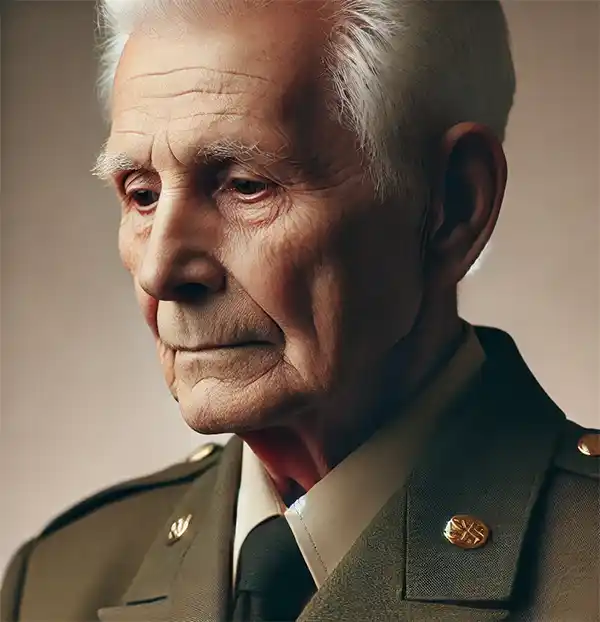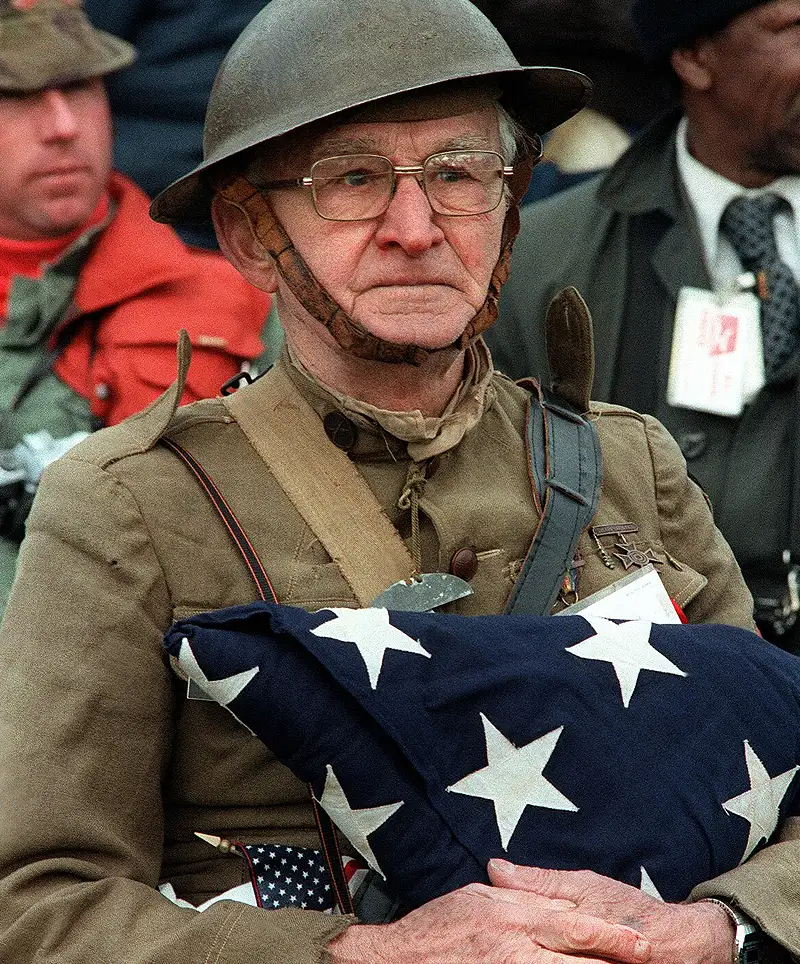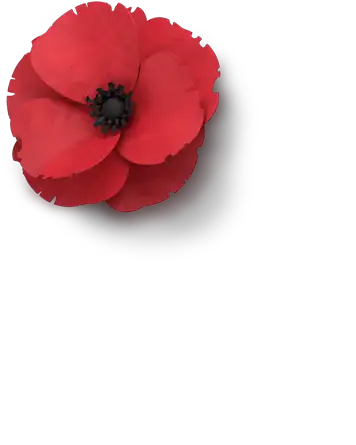Honoring Those Who Served
Veterans Day has its roots in World War I, which was commonly referred to as “the war to end all wars.” On November 11, 1918, at the eleventh hour of the eleventh day of the eleventh month, the Allied powers and Germany signed an armistice that ended the fighting. This day became known as Armistice Day, commemorating the end of the Great War and the sacrifices made by millions. In 1938, Armistice Day became an official federal holiday in the United States, originally designated to honor veterans of World War I.
After World War II and the Korean War, there was a push to expand the day’s purpose to honor veterans of all wars, past and future. In 1954, President Dwight D. Eisenhower signed legislation changing “Armistice Day” to “Veterans Day,” a day dedicated to American veterans of all conflicts.
A Common Confusion
It’s easy to confuse Veterans Day with Memorial Day, another day set aside to honor military personnel. However, there is an important distinction. Memorial Day, observed on the last Monday in May, is dedicated to remembering and honoring those who died in military service. Veterans Day, on the other hand, celebrates all those who have served in the U.S. military, past and present. It’s a day to honor the living and to express gratitude for their service and sacrifices.
Who Is a Veteran?
A veteran is someone who has served in the military, whether in active duty, the National Guard, or the Reserves. Veterans come from all walks of life and encompass diverse backgrounds, ages, and branches of service. Each veteran’s experience is unique, shaped by their time of service, the nature of their work, and their own personal journey.
 The U.S. Department of Veterans Affairs estimates there are over 19 million veterans in the United States today. These men and women represent a spectrum of service, from those who served during peace to those who were in active combat. Each has sacrificed in some way, whether by leaving their homes and families, facing danger, or simply committing years of their lives to serve their country.
The U.S. Department of Veterans Affairs estimates there are over 19 million veterans in the United States today. These men and women represent a spectrum of service, from those who served during peace to those who were in active combat. Each has sacrificed in some way, whether by leaving their homes and families, facing danger, or simply committing years of their lives to serve their country.
How Veterans Day is Observed
Veterans Day is a federal holiday, and many organizations and schools across the country observe it in various ways. Parades, ceremonies, and events are common, and it’s traditional for the president to lay a wreath at the Tomb of the Unknown Soldier in Arlington National Cemetery as part of a solemn ceremony honoring all who served.
In communities across the United States, Veterans Day parades often take place, featuring veterans’ groups, military bands, and local leaders who come together to recognize and honor the contributions of veterans. Schools, too, frequently observe the day with special assemblies and educational programs designed to teach students about the sacrifices veterans have made.
Businesses often offer discounts or free services to veterans on this day, including free meals, haircuts, and access to recreational activities, in appreciation for their service.
Ways to Honor Veterans Beyond Just the Day
While Veterans Day provides a focused moment of gratitude, there are many ways to show appreciation for veterans year-round. Here are some meaningful actions:
-
Express Gratitude: Simply saying “thank you for your service” can have a profound impact. Veterans often appreciate acknowledgment of their commitment and dedication.
-
Support Veteran-Owned Businesses: Many veterans run small businesses that benefit from community support. From local shops to online services, supporting a veteran-owned business is a practical way to give back.
-
Donate to Veterans’ Organizations: Numerous nonprofits support veterans in various ways, from providing housing and mental health resources to helping them transition back to civilian life. Organizations like the Wounded Warrior Project, Fisher House Foundation, and Team Rubicon make direct impacts on veterans’ lives.
-
Volunteer with Veteran Organizations: Volunteering at veteran centers, hospitals, or local events is a direct way to connect with and support veterans. Many organizations appreciate help from community members in a variety of capacities.
While Veterans Day is a day of celebration and honor, it’s also an important time to reflect on the unique challenges that veterans face. Many veterans struggle with transitioning back into civilian life, with challenges ranging from finding employment to adjusting to a drastically different pace and structure of life.
Veterans are also disproportionately affected by mental health issues, including post-traumatic stress disorder (PTSD), depression, and anxiety. Accessing mental health care can be a challenge, and stigma sometimes prevents veterans from seeking the help they need. Additionally, some veterans face physical challenges, including disabilities from injuries sustained during service, which may require ongoing medical care and support.
Organizations such as the VA and community groups offer programs to address these needs, but support from the broader community is invaluable. Awareness of veterans’ issues, combined with empathy and understanding, goes a long way in helping veterans feel valued and supported.
Veterans and the Community
Veterans bring unique skills and perspectives to their communities, including leadership, teamwork, and resilience. Many continue to serve after their military careers in public service roles such as police officers, firefighters, teachers, and healthcare workers. Others contribute as volunteers, dedicating their time to causes that benefit their communities. Veterans often carry a strong sense of duty and service, making them valuable assets to their communities in many ways.
Veterans Day is not only a reminder of the importance of recognizing and honoring veterans, but it’s also a call to action for Americans to consider the sacrifices that come with service. The freedoms enjoyed in the U.S. are, in part, secured by those who volunteer to protect them. Veterans Day serves as an opportunity to bridge the gap between civilians and military personnel, fostering understanding and respect for the sacrifices that come with serving.
A Personal Perspective
For many veterans, this day is one of reflection as well as celebration. Each veteran’s story is unique, shaped by their experience and the nature of their service. It’s a day when veterans often reconnect with fellow service members, remembering shared experiences, challenges, and accomplishments. For families of veterans, the day can be a meaningful time to show their appreciation, honor their loved ones’ service, and spend quality time together.
Veterans Day is a time to honor those who have given their commitment, courage, and dedication to their country. By showing appreciation, educating others, and supporting veterans year-round, Americans can ensure the legacy of Veterans Day continues in a way that reflects the respect and gratitude these individuals deserve.
Please Share our Content






 The U.S. Department of Veterans Affairs estimates there are over 19 million veterans in the United States today. These men and women represent a spectrum of service, from those who served during peace to those who were in active combat. Each has sacrificed in some way, whether by leaving their homes and families, facing danger, or simply committing years of their lives to serve their country.
The U.S. Department of Veterans Affairs estimates there are over 19 million veterans in the United States today. These men and women represent a spectrum of service, from those who served during peace to those who were in active combat. Each has sacrificed in some way, whether by leaving their homes and families, facing danger, or simply committing years of their lives to serve their country.








 "Sláinte!" is a traditional Irish expression used as a toast, equivalent to "Cheers!" in English.
"Sláinte!" is a traditional Irish expression used as a toast, equivalent to "Cheers!" in English.